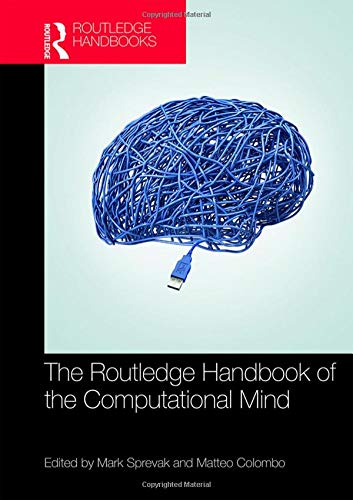ROUTLEDGE HANDBOOK OF THE COMPUTATIONAL MIND
ROUTLEDGE HANDBOOK OF THE COMPUTATIONAL MIND is backordered and will ship as soon as it is back in stock.
Couldn't load pickup availability
Genuine Products Guarantee
Genuine Products Guarantee
We guarantee 100% genuine products, and if proven otherwise, we will compensate you with 10 times the product's cost.
Delivery and Shipping
Delivery and Shipping
Products are generally ready for dispatch within 1 day and typically reach you in 3 to 5 days.
Book Details:
-
Author: Mark Sprevak
-
Brand: Routledge
-
Edition: 1st
-
Binding: Hardcover
-
Number of Pages: 510
-
Release Date: 06-Sep-2018
-
ISBN: 9781138186682
-
Languages: English
-
Package Dimensions: 9.9 x 7.1 x 1.3 inches
Product Description:
The Routledge Handbook of the Computational Mind offers an in-depth philosophical exploration of computational approaches to cognitive science, addressing significant questions about the mind, brain, and behavior. This volume is the first of its kind, providing a comprehensive overview of computational models in the study of cognition.
Key Features:
-
Exploring Computational Mind: Investigates how computational models can explain various aspects of the human mind, such as perception, learning, and decision-making, while addressing the philosophical implications of these models.
-
Multi-disciplinary Contributions: Comprising thirty-five chapters by experts from a range of disciplines including philosophy, psychology, neuroscience, and computer science, this handbook offers a diverse perspective on computational approaches.
-
Comprehensive Structure: The book is divided into four sections, making it easy for readers to navigate through key topics:
-
History and Future Prospects: Traces the development of computational approaches and their potential future directions.
-
Types of Computational Approach: Examines different computational models and their applications.
-
Foundations and Challenges: Discusses the philosophical and scientific challenges faced by computational models in cognitive science.
-
Applications to Psychology: Focuses on how computational approaches are applied to different areas of psychology, including perception, learning, and decision-making.
-
Topics Covered:
-
The Philosophy of Mind and Computational Models: Examines the philosophical implications of computational theories of mind.
-
Challenges and Advancements: Explores the challenges computational models face in replicating human cognitive processes and offers suggestions for future advancements.
-
Interdisciplinary Perspectives: Provides insight into how cognitive science intersects with philosophy, neuroscience, and psychology, making it a vital resource for those in these fields.
-
Practical Applications: Discusses real-world applications of computational models in understanding human behavior, mental states, and cognitive processes.





